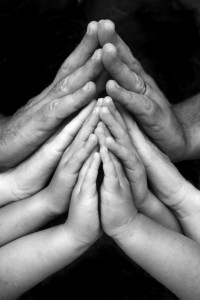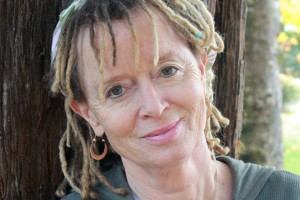
I mentioned several months ago that I had an assignment to write a magazine article on prayer. I’ll let you know when it’s published, but in the meantime I thought prayer might be a fertile topic here at The Holy Rover for a few days.
I must say I’ve had considerable frustration with this article. It’s been through many editor-ordered revisions, enough to give me multiple headaches at the computer (you do not want to know how many curse words I have uttered because of my prayer article). So some of what I’ll be posting over the next days is material that got tossed overboard by my editor. But I still think it’s interesting information—and I hope you will too.
So…let me say first that prayer and I go way back, though we’ve had somewhat of an up-and-down relationship.
I’ve had your classic no-atheists-in-foxholes experiences, times when I’ve prayed fervently in hospital emergency rooms and by the bedsides of sick children. I’ve breathed countless thanksgivings, too, whether it was for a negative biopsy or a spectacular sunset, moments when I felt like my entire being was alight with praise.
Though the older I get, the more important prayer becomes to me, I must confess as well to frequently feeling inadequate in the prayer department. I’ve made vows I haven’t kept, started disciplines I later abandoned and dozed off when I tried to meditate. I’ve promised to pray for loved ones and then promptly forgotten to do so. I’ve tried to wheedle my way into divine favor, promising things I didn’t intend to deliver. I’ve been terribly disappointed in prayer at times, and at other moments I’ve doubted that anything was going on in prayer other than my own wishful thinking.
I would guess my experiences with prayer mirror those of many Americans. As a group we tend to pray a lot—according to the Pew Research Center, 66 percent of women do so at least once every day, along with 49 percent of men. Nearly 90 percent of Jehovah’s Witnesses pray daily, compared with 82 percent of Mormons, 58 percent of Catholics, 53 percent of Mainline Protestants, and 45 percent of Buddhists. The older we get, the more we tend to pray (though it’s also true that the wealthier we become, the less we pray).
But what exactly happens to us, physiologically and psychologically, when we pray? And is it possible to learn how to pray better? Stay tuned to find out.











